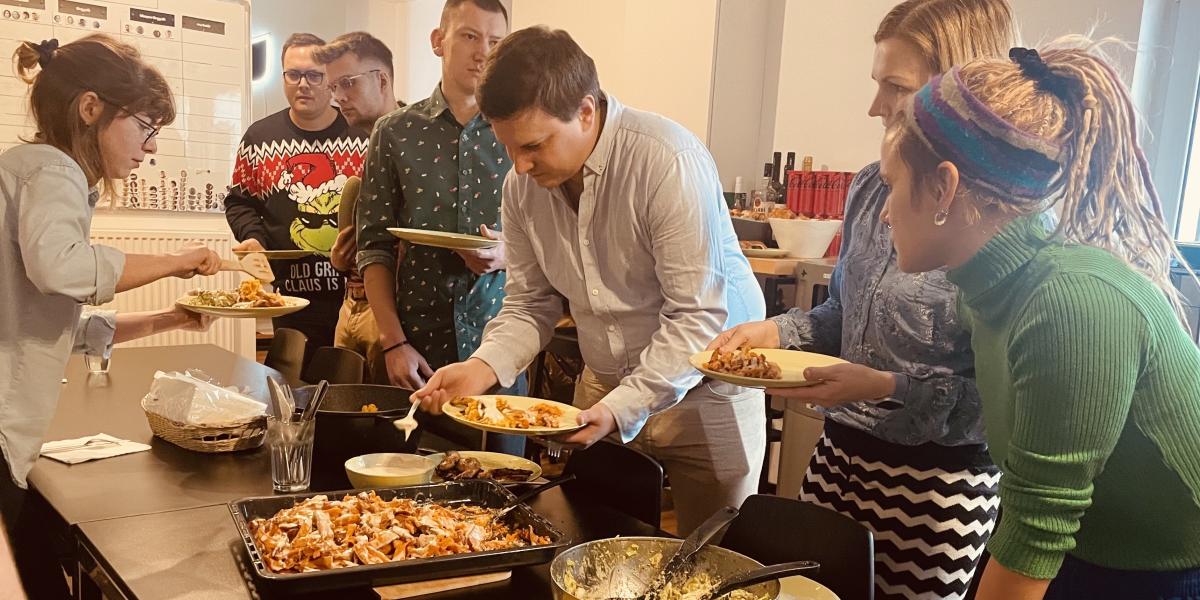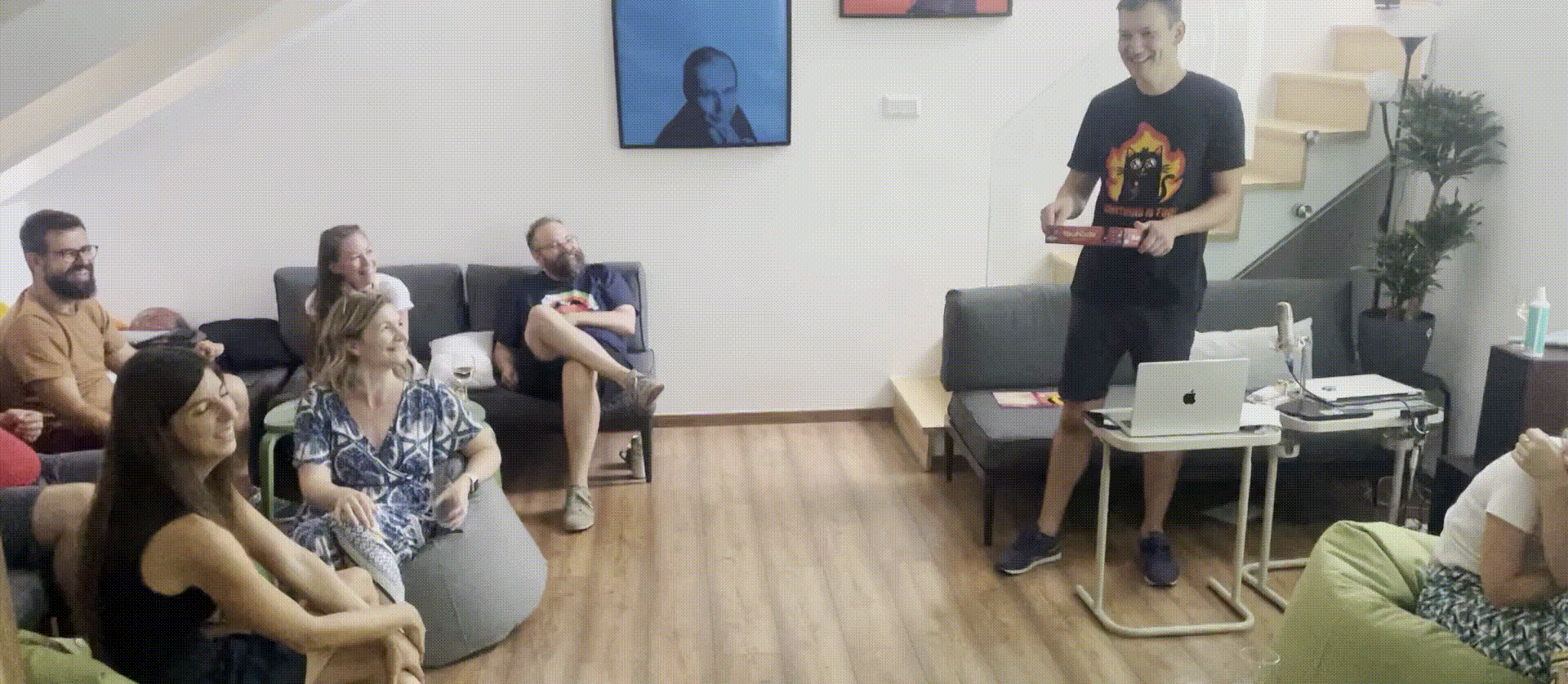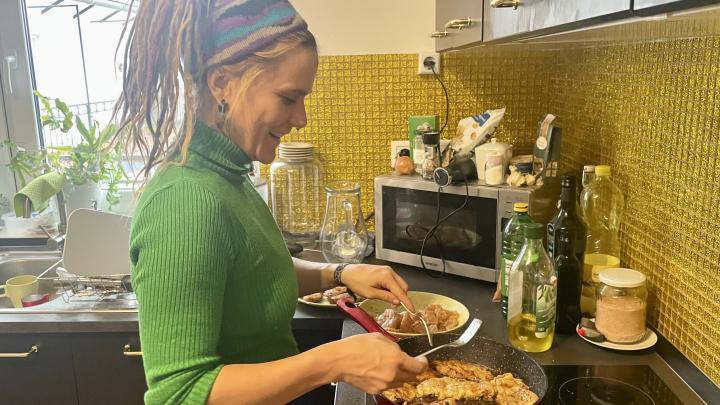
I was on the funicular in a ski resort when I heard the news that Russia had attacked Ukraine. I was stunned, and in an instant, I realized that everything had changed. The world is not the same today as it was yesterday. We have entered a new era, and from now on, we will have to live in constant uncertainty.
Over the next few months, I re-evaluated everything, and together with Andi, we set up an action plan, which we then presented to the team. We already had some routine in how to handle a crisis situation, and thus, we were able to use the energy generated by the tension and adapt to the situation.
With the new situation, post-Covid joy was gone almost in an instant, replaced by war anxiety, and I did what I do best: concentrate on the well-being of the team. I reread the literature on resilience and worked hard to address the tension in the air, talk it out together, and be aware of what we were doing about it. The difficulties were aplenty: burnout, lack of perspective, and emotional depression, just to name but a few. Conditions came and went, but the team coped with everything.
This went on for a few months, but it slowly became clear that, while we were dealing effectively with negative emotional states, overcoming the challenges did not automatically create a positive atmosphere. The exhilaration that comes from successfully solving a difficulty is not a lasting feeling, and we always keep slipping back into anxiety and negative emotional states.
Focus on strengths
It seemed that the time had come to draw inspiration from positive psychology, and I enrolled in Martin Seligman's postgraduate training to learn how to consciously retune ourselves for more lasting well-being.
One of the highlights of this process was when I was introduced to the VIAStrenghts model. I found that although we had integrated the five dimensions of the Seligman model in our community relatively well, somehow we were always missing that special component that could tune everyone individually. It's a simple principle: if we have a good map of human strengths, and a validated test to see each person’s unique visceral abilities, then we have to make people aware of these strongest traits and further enhance them. What I am strong at by default, I will be able to experience success and excel in the future. This can further improve me in other related areas as well, and all this while enjoying the process.
I introduced the subject to the team, and since everyone was open to addressing it at a company level, we took the test and created a company strength matrix that highlighted what we collectively excel at, i.e. where our energy is.
In addition, I also initiated supportive one-on-one conversations with some of my colleagues, where we reflected on past events and their future plans based on the individual test results. It provided a good framework to formulate pragmatic statements for each identified strength, serving as a compass for our whole community.
As with everything, this tool is not a panacea, but it is certainly a useful instrument to shift our focus from the negative to the positive. Rather than asking what hasn't worked well enough or, what needs to be improved, we can now focus on our visceral strengths and how to make the best use of them. Because this method is empowering and motivating, it works well in most cases, when there is no acute difficulty.
Should I listen to myself or to others?
As I delved deeper into the subject, a plethora of different layers revealed themselves within the model. Of course, I felt like Alice down the rabbit hole, but nevertheless, I was blown away by the beauty of how kindness, honesty, perseverance, teamwork, and other strengths showed themselves in each of us. Everything was put in a different light.
Self-help books are in dizzying abundance overseas, with the vast majority of them selling the idea that putting oneself first is the magic key to lasting well-being. Then along came Christopher Peterson, and he summed up the quintessence of his nearly eight hundred-page Character Strengths and Virtues book in three short words: Other people matter. What matters is the focus I put on others, and on getting to know my team members. The presence and the attunement I experience with other people are what matters.
Focus of strength
Over the past few months, I have learned that effective crisis management helps us to cope with difficulties, and it can also release related frustrations. By focusing on the problems, we can avert the trouble; but that alone is not enough to attain a lasting positive experience. On the other hand, by focusing on our strengths, we can start a lasting adjustment that increases people's self-esteem and well-being through positive reinforcement.
Share with your friends!

